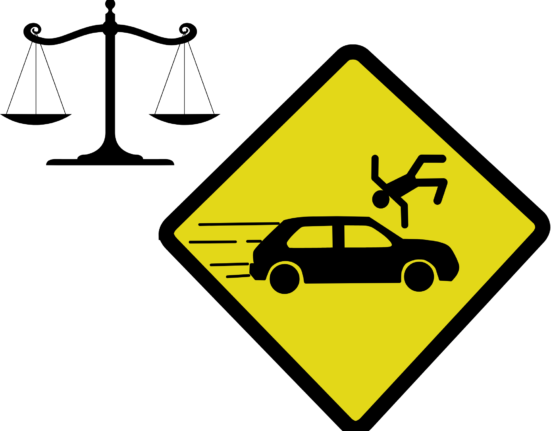This Article Explains thoroughly about the Essential Elements of Crime
Introduction
The cardinal principle of criminal law is contained in the maxim ‘actus non facit reum, nisi mens sit rea’. It means an act does not make a person guilty of a crime unless the mind is also guilty.
The general rule of English law states that a person will be criminally liable if he has committed a prohibited act, which is by a certain state of mind. Clearly, there is a difference between an accident which cause injury and a deliberate act which injures another. The difference may not be in the act, but in the state mind of the actor. However, certain crimes do not require any particular state of mind. These crimes are classified as strict liability offences. They are an exception to the requirement of mens rea.
Often, in criminal law, a crime is committed when there is a combination of actus reus and mens rea. The actus reus for each crime must be established. It is not enough that mens rea for the crime was present, if actus reus was not committed as well. The main reason for this is that criminal law insists on some expression of someone’s criminal thoughts through their actions before it will intervene to punish them. Moreover, there is no criminal liability for possessing a particular state of mind. Mens Rea and deliberate conduct by the accused is essential to constitute offence.
Essential Elements of Crime
1. Actus Reus as Essential Elements of Crime
It is the deed of commission, a result of active conduct of the offender. The word Actus denotes a deed, a material result of human conduct. When the criminal policy regards such a deed as sufficiently harmful, it prohibits it and seeks to prevent its occurrence by imposing a penalty for its commission. Thus, Actus Reus may be defined as such result of human conduct as the law seeks to prevent. It is important to note that the actus reus, which is the result of conduct and therefore an event, must be distinguished from the conduct which produced the result. For example, in a case of murder, the death of the victim is brought by stabbing. Here the actus reus is homicide which is brought by the conduct of the offender i.e. stabbing.
There may be situations where the law commands or permits the harm to be inflicted. In such cases the act done does not amount to offence. For example: a duly appointed executioner who puts to death a condemned criminal. No criminal liability arises in such cases.
2. Causation
There may be several causes of an event. It is however reasonable to say that an event may be caused by one of these factors if it would not have happened without that factor. From this it would follow that a man can be said to have caused the actus reus of a crime if that actus would not have occurred without his participation in what was done. The ancient rule of strict liability required no more than this test. However, with modern day conception of mens rea no hardship could result from the investigation of causes since the more remote the cause, the greater the difficulty of proving that the accused person intended or realized what the effect of it would be.
The physical element in criminal liability can be assessed under the following heads:
- When there is no physical participation: A man can be held fully liable even though there is no physical participation in the act. Thus, law from very early times attached to one who procures or advises another to commit a crime at least an equal responsibility with that of the actual perpetrator of the deed. The law dealing with such situations is dealt under the heads of incitement and conspiracy.
- Where the participation is indirect: The actus reus is fully attributed to anyone who has done things which have led or allowed some wholly innocent person to act under mistake so as to cause harm in question. An example would be: A puts poison into a drink which he knows or expects that B will offer to C.
- Where another person has intervened: In certain cases, it would seem that the harm could not have occurred but for an act or omission on the part of the offender, but in which he has been excused on the ground that some other person intervened and s appeared to have more immediate and direct cause of harm. In R v. Hilton, on an indictment of manslaughter, it appeared that the prisoner who was in charge of a steam engine had stopped the engine and gone away. During his absence some unauthorized person had set the engine in motion after the prisoner had gone away. The judge held that the death was the consequence, not of the act of the prisoner but of the because of the because of the person who had set the engine in motion after the driver had gone away.
- Where victim’s own conduct has affected the result: Although there is no definite test laid down by any authority it would seem that so long as it is reasonably certain that the result charged against the offender in the indictment (a) would have occurred even if nothing was done subsequently by the victim (b) did occur although it might have been averted if the victim had taken some remedial action, then the prisoner offender be convicted. In cases where the victim’s conduct has affected the result, the benefit of it must go the offender. In R v. Martin the prisoner was charged with the manslaughter of his 4-year-old son by giving it gin. It appeared that he had held out a glass to a little boy who snatched the glass and drank nearly the whole of the liquor which brought about its death shortly. The prisoner was acquitted on the grounds that the death followed because of the act of the child.
- Contributory negligence of the victim: that the victim of an offence has contributed to the harm by his own negligence affords no such defence to the accused in criminal proceedings as it may do in a civil action. In R v. Swindall and Oshborne, it appeared that the prisoners were driving a horse and cart on the public road and encouraging each other to drive at a dangerous pace. In the course of this, they ran over and killed a pedestrian. It was held that it is immaterial whether the deceased was drunk or negligent, or in part contributed to his own death.
3. Mens Rea as one of the Essential Elements of Crime
Mens rea means the evil intent or guilty state of the mind. It refers to psychological state or desire of the offender to bring about a contemplated result. Two tests have evolved to determine the mens rea in a particular case:
- Whether the act in question is a voluntary act of the accused? (Section 39 of IPC defines voluntarily)
- Whether the accused had foresight of the consequences of the conduct?
There are different degrees of mens rea.
Intention: To intend is mind is to have a fixed purpose to reach a desired objective. The word intention is used to denote the state of mind of a man who not only foresees but also wills the possible consequences of his conduct. For example: If a man chops off the head of another, it is clear that he not only foresees his death but also wills to cause the death. There cannot be intention without the foreseeability of the consequences and willingness to turn foreseeability into reality.
Knowledge: Knowledge is the awareness on the part of the person concerned, indicating that his mind is aware of the possible consequences of his conduct. In Basdev v. State of Pepsu, it was observed that knowledge is an awareness of the consequences of the act. In many cases intention and knowledge merge into each other and mean the same thing more or less and intention can be presumed from knowledge. The demarcating line between knowledge and intention is no doubt thin but it is not difficult to perceive that they connote different things.
Recklessness: A man may foresee the possible or even probable consequence of his conduct, not desire them to happen and despite this knowingly runs the risk of bringing about unwished results. A man who is reckless may prefer that the contemplated event shall not happen and does not desire for it to happen and does not act with the purpose that it shall happen. But despite this the person knowingly runs the risk.
Negligence: When a man is negligent, he may not have foreseen the probable or possible consequences of his actions. There is no foreseeability of possible consequences in negligence. The word negligence denotes such blame worthy inadvertence and the man who through his negligence has brought harm upon the other is under an obligation to make reparations to the
victim. Under IPC, negligence has been incorporated very specifically to fasten liability in cases of death caused by negligence (Section 304A). Negligence is essentially a principle of tort law.
4. Motive :
Motive is the psychological phenomena which compels a person to do a particular act. For example: ambition, jealously, fear etc. Motive is something which leads or tempts the mind to indulge in an act or which compels the mind to do an act. According to Austin, motive is like a spring. It pushes the intention further. In contrast, intention is the aim of the act. Motive is something which triggers mens rea. Motive can be good or bad. For instance, a person may commit theft to feed poor people. His motive is good, i.e., helping the poor. However, his intention is to commit a crime to achieve that motive. Motive may be relevant to find out the guilt if the accused but is not an ingredient of crime.
This was all about Essential Elements of Crime.
Also Read: SECTION 34 to 38 OF IPC: General Explanation
![]()







Leave feedback about this